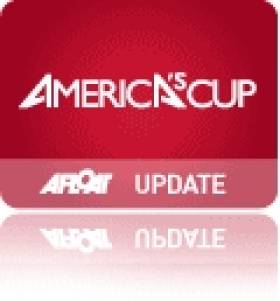Displaying items by tag: low carbon
#bar – The Ben Ainslie Racing (BAR) team says Britain's sailing superstar is leading the sporting world in sustainability, in its bid to bring the 35th America's Cup to the UK.
The sailing team, formed by Olympic multi-gold medallist Ben Ainslie, is announcing a long-term partnership with renewables investor Low Carbon. The partnership will provide the team with clean energy as it develops its 2017 bid for the world's oldest international sporting trophy.
Low Carbon will ensure the team's headquarters – currently under construction on the Camber in Portsmouth – is powered by the very latest, high efficiency solar photovoltaic (PV) technology. The initial target is to supply 90% of the team's electricity power needs, with this improving to 100% once energy monitoring is implemented.
Low Carbon is committed to mitigating climate change by encouraging, wherever possible, the reduction of carbon emissions. Investing capital into renewable energy, the firm's investment model embraces solar PV, concentrated solar power, wind and bio-waste technologies. Within less than four years, Low Carbon has developed more than 270MW of UK solar power. A broader international portfolio exceeding 2GW is in the pipeline.
The partnership will greatly support BAR's efforts to run a sustainable business with clean energy. It will also see the team's HQ accorded BREEAM 'Excellent' status – the hallmark of excellence in sustainable building. The BAR HQ is expected to be completed in the summer of 2015.
Commenting on the partnership, Low Carbon's Founder and Chief Executive Roy Bedlow said: "I'm very excited by this long-term partnership, and with the prospect of making a key contribution to a true British success story. With Low Carbon and BAR sharing an ethos of sustainability, responsibility and mitigating the effects of climate change, I believe that together we can continue to make a difference for the better, long into the future."
BAR's Team Principal, four-time Olympic medallist and America's Cup winner, Ben Ainslie commented, "We're delighted to be onboard with Low Carbon, and this new partnership takes us a long way towards our goal of sustainable, clean energy for our new base."
Bedlow adds: "This project has exciting implications for renewable energy. Because the BAR philosophy is about educating and engaging locally, the project will be a fantastic showcase for how large buildings can be almost entirely sustainable."
In a separate initiative, Roy Bedlow is joining the board of the team's charity as a Trustee. Launched in October 2014, the 1851 Trust seeks to inspire and engage a new generation through sailing and the marine industry, providing young people with the education, skills and training required to become innovators of the future, and stewards of the marine environment.





























































